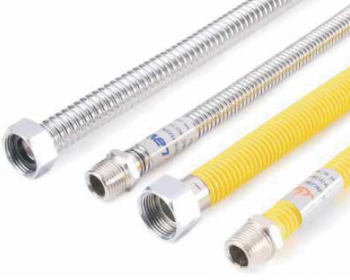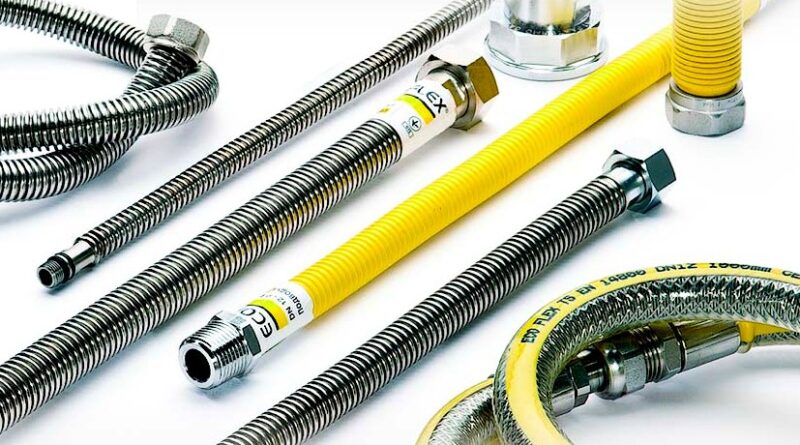Flexible gas lines and hoses, which one is better to choose
Flexible gas pipes have come into use relatively recently. Until the mid-90s, the connection of gas appliances was carried out exclusively with rigid steel pipes, but then the standards softened somewhat. The gas stove and other equipment were allowed to be connected with flexible connections, but the requirements for the reliability of such systems remained very high.
Types of gas supply
To connect gas appliances, two types of connections are used: rubber (reinforced with a metal braid) and bellows - a flexible stainless steel metal hose. Both types are subject to stringent requirements for durability, resistance to aggressive media and high pressure, so their main differences are the price and complexity of the installation.
The rubber hose is more flexible and relatively inexpensive. During operation, even a slight movement of the stove is allowed, for example, when cleaning (it is necessary to ensure that the gas line does not bend or stretch). To the polymeric materials from which the gas hose is made, increased requirements for strength and chemical resistance are imposed. The braid is made from quality stainless steel, so don't worry about these hoses failing as often as water hoses.
The bellows hose is more rigid. The required shape is given to it during installation, after which it is undesirable to independently move the gas appliance. Metal eyeliner is more reliable and durable, therefore its cost is slightly higher. High-quality bellows liners are produced by Lavita Co Ltd, the official representative of this company in Russia is Lavita Ural LLC
Quality and safety
Despite the fact that both types of liners are allowed, bellows sleeves, recommended by the current standards, are increasingly prevalent on the market. Note that gas services in large cities are gradually abandoning rubber pipes (Moscow has already completely switched to metal liners).
Regardless of what type of connection you choose to connect a gas water heater, stove or other equipment, remember that your safety depends on its reliability.
Stainless steel gas pipes
 Advantages
Advantages- High corrosion resistance
- Flexibility and ease of installation
- Unlimited service life
- Reliable protection against gas leakage
- Modern design
Specification
- Material
- Flexible hose: Stainless steel AISI 304
- Fittings and nuts: Stainless steel, carbon steel and brass
- Working pressure up to 0.8 bar
- Working temperature -20 ° C - 100 ° C
- Gas boilers
- Gas stoves
- Gas supply lines
